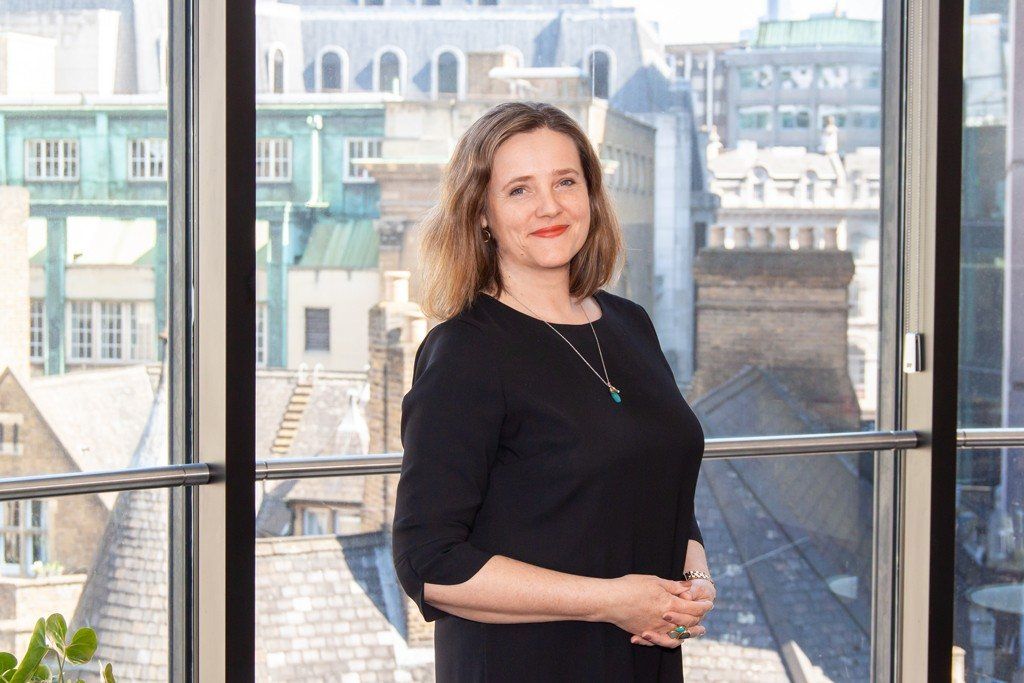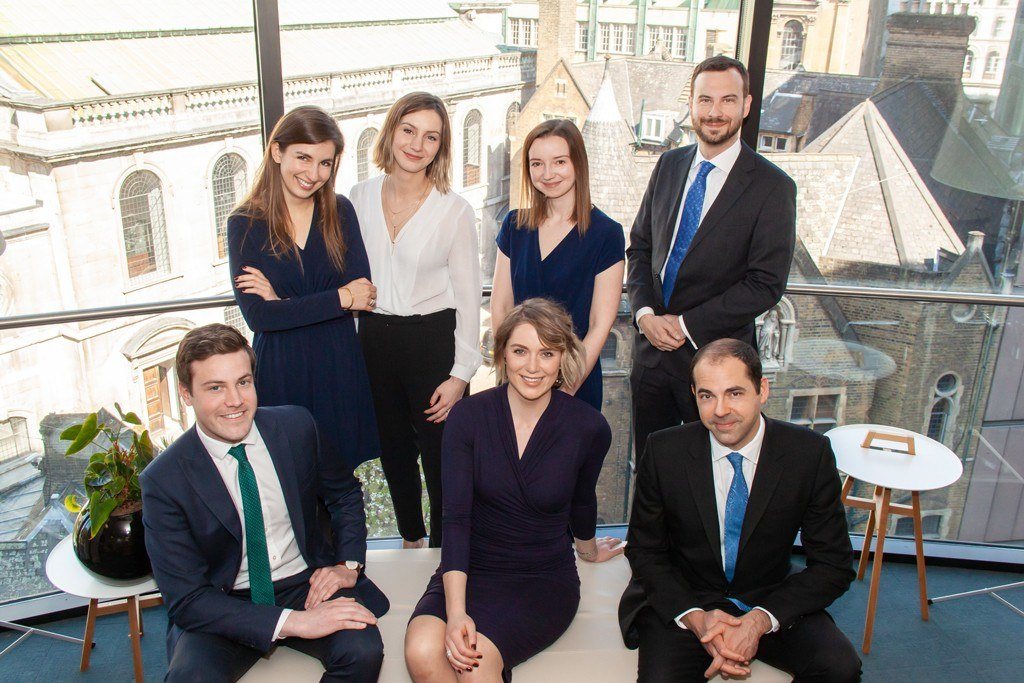A letter from Carter-Ruck is something that every editor has learned to fear. As the potential precursor to a defamation action, the firm and its founding partner, Peter Carter-Ruck, became synonymous with libel thanks to their successful representation of numerous public figures – often prominent in business, politics, sport or entertainment.

Beyond achieving retraction, settlement and a suitable public apology, a significant number of high-profile cases ended up in court with Carter-Ruck habitually on the side of the winner. The ensuing headlines helped to forge the firm’s national and international reputation.
Today, Carter-Ruck remains at the forefront of media law as it rapidly evolves in the digital age, managing a high volume of internet and social media-related cases in addition to the more traditional newspaper and television media work.
Media evolves
The changing social media landscape increases the scale and intensity of risk. In this space, the firm is still the most feared brand: it continues to act in a series of high-profile cases including for corporates, senior executives and investors as well as for high-net-worth and ultra-high-net-worth individuals, heads of state and celebrities.
‘Media law is much the same, but the platforms have changed,’ says Carter-Ruck’s managing partner, Nigel Tait. ‘There has been an enormous growth in the scale, speed and intensity of communication in recently developed social media platforms, such as Instagram and Twitter, and the interplay with the most recent developments in the law. We have people who have been here since Peter Carter-Ruck was at the firm, but also many young lawyers who understand social media better than some of the old media that we know and love.’

Carter-Ruck media law partner Adam Tudor adds: ‘Our cases frequently involve high-profile clients, and are invariably highly sensitive, both commercially and reputationally – the two considerations often being inseparable. The work is always fast-moving in the online world with its round-the-clock news cycle. This applies as much to work for leading companies, senior executives and high-net-worth individuals as it does for senior politicians and celebrities.’
As examples of the latter, Carter-Ruck clients have included royalty around the world, rulers and leading politicians in Europe, Asia and the Middle East, film directors, actors, sportspeople and celebrities from the music business such as Simon Cowell, Bryan Adams, Sir Elton John, Liam Gallagher and James Blunt.
Corporate clients
Most corporate clients remain confidential, although two in the public domain – BT and Tesco – are representative of the wider spectrum. Industry sectors from which those clients originate include: private equity, finance, energy and natural resources, life sciences, pharmaceuticals, healthcare, retail, telecommunications, manufacturing, transport, construction and real estate, education, government, defence, and professional service firms. Conflicts are rare since the firm does not have non-contentious practice groups.
‘There is a concentration of media expertise here,’ says Tudor. ‘Blue-chip corporate clients come to us because we have a wealth of experience of dealing with fast-moving situations. We are known – and respected – for being robust but straight, as well as realistic. This adds to the weight our name carries and therefore the positive impact our involvement can bring for clients. Cases are partner-led and there is daily partner contact, often working seamlessly with PRs. And of course, we approach everything with the utmost discretion.’
From each corporate’s point of view, reputational risks still arise from mainstream media, including broadcast media, but they are now more likely to come from social media. In mitigating risk, scoping threats and having crisis management plans in place can help to alleviate potential problems. ‘We advise on how companies can use legal remedies to address the threat of publication of false or confidential material, or private information about staff or executives. And we help them seek redress after information is published,’ Tudor adds.
Carter-Ruck works closely with in-house lawyers and corporate communications and PR teams. Areas of law that most often come into play are breach of confidence, privacy, data protection, and protection from harassment as well as defamation and malicious falsehood. The firm frequently manages multijurisdictional issues, with close non-exclusive relationships with media lawyers in most jurisdictions and with commercial firms that do not have a media law capability.
In the UK, procedural changes, such as the abolition of the right to jury trial, combined with the impact of the Defamation Act 2013 (the Act), mean that fewer libel cases now make headlines. ‘It has helped to cut costs because judges pre-read the papers, are generally familiar with the law and don’t need things explained to them as much so trials are generally shorter,’ explains Tait.

But their impact still resonates: Carter-Ruck’s recent big wins include acting for Pakistan’s first billionaire Mian Mansha, the founder and CEO of the Lahore-based international conglomerate Nishat Group, and Chairman of MCB Bank, who sued ARY Network (now in liquidation) following serious, false and defamatory allegations broadcast on TV programmes in November 2015. A settlement with the liquidator was approved in the High Court on terms including payment of £75,000 in damages to Mr Mansha.
Tactical expertise
In addition to knowing the law, the firm has unsurpassed experience in applying it. The practicalities just as often involve keeping things out of the media as they do taking action after a story has been published. The respect that Carter-Ruck letters command from in-house lawyers at media groups and senior newspaper people is undiminished. They are still treated differently from those of other firms.
Tudor outlines the Carter-Ruck strategy. ‘Pre-publication work is about far more than the law: it’s about understanding how the chess game might play out, through lawyers, PRs or both,’ he says. ‘Where you need to try to stop a story, the law can often help. But in most cases where publication probably can’t be stopped completely, it’s about making sure the story is accurate, balanced, and careful… and holding the publisher to account if they transgress.’
Tait explains what typically happens. ‘It’s a classic Friday when prominent people and businesses come to stop a threatened story,’ he says. ‘Mostly, this can be done by way of phone call or letter, but occasionally an injunction is required. We’ve secured many injunctions – often for breaches of privacy as in the case of PJS v News Group Newspapers, and sometimes in connection with blackmail.

‘We are often up against the main newspapers and broadcasters. It’s incredibly satisfying when the client is completely removed from a piece, or false or private allegations are dropped. I love the work, love the job. It’s fast-paced, stimulating, and high stakes.’
Carter-Ruck successfully acted for the claimant (PJS), who sought an injunction restraining publication concerning events in his personal life. Subject to much comment from the press, the case went all the way to the Supreme Court which upheld the injunction restraining infringement of his privacy.

Immediately after the Act came into effect, there was a decline in the number of defamation actions. But there has since been a notable recovery, according to the latest available figures. ‘Newspapers are tending to fight cases longer and harder,’ says Tait. ‘Things have been very healthy over the last few years as newspapers and others take cases to court to see what judges have to say about the Act.’
The ‘serious harm’ threshold in the Act requires companies to demonstrate financial loss in order to make out a libel claim, although no such threshold needs to be met by individual claimants. Carter-Ruck anticipates that many companies will continue to be named as defendants in defamation actions, and will face other challenges as the law evolves.
Digital reputation
‘We enjoy working on innovative and novel cases,’ says partner Claire Gill. ‘It’s intellectually exciting, and very satisfying if it leads to a game-changing decision.’ In a landmark case, Gill successfully acted for two businessmen in the first Right to be Forgotten action in the UK against Google. ‘In deciding whether they had the right to have personal information concerning spent convictions removed from Google search results, the High Court had to consider a complex legal framework spanning EU human rights, data protection legislation, and the Rehabilitation of Offenders Act 1974,’ she says.
This is just one example of the firm’s long record in pursuing claims against online search engines. Partner Alasdair Pepper outlines another: ‘I recall when a prominent businessman faced numerous articles containing unfounded and damaging allegations. We got a large number removed from newspaper websites, aggregators and blogs. Over 300 search results on Google, Yahoo! and Bing were delisted. The aim is to reduce exposure on search engines and permanently remove content from host websites.’
Other examples of where Carter-Ruck advises corporate clients include managing whistleblowers, dealing with disgruntled former employees threatening to publish defamatory claims on social media or go to the press, responding when confidential material has been leaked to the press or where there has been a data breach. The firm also advises on everything from bad reviews and dirty tactics from competitors to sting operations and undercover filming, blackmail and reputational risks that arise in the course of litigation.
In addition to its media law practice, Carter-Ruck also represents clients in international arbitration in commercial and investment treaty disputes. ‘Arbitration and international law, including sanctions, is a substantial proportion of the firm’s work,’ says Tait. ‘Some of that arose from defamation because clients who were going to be the subject of sanctions were written about in newspapers, wrongly, and came to us. They then found their bank accounts frozen, sanctions applied to them wrongly and we managed to win most of our cases in the international courts.’ That includes winning a landmark case in the European Court of Justice on behalf of the Saudi businessman and philanthropist Sheikh Yassin Abdullah Kadi.
Culture
Defining a firm’s culture can be hard, and despite what some may say, not all law firms are the same. First and foremost, Carter-Ruck defines itself through its client service which is partner-led. At the same time, the firm prides itself on its associates as their quick development of client skills is encouraged by working closely with partners. They are hired from the same pool of first rate associates as the US and Magic Circle firms.
‘We have a fantastic team of associates, some of whom have trained here, others who have come here from the big City or US firms,’ says Gill. ‘They want to work on exciting and challenging work that involves current issues, with an ethos of going the extra mile.’
Partner Antonia Foster develops the point. ‘We put a lot of emphasis on diversity and more than half of our fee-earning staff, including 40 per cent of the partners, are women,’ she says. ‘We support social mobility and access to justice, sponsoring the charity Big Voice London which encourages young people into the law from communities that are under-represented in the profession.’

Front row: Aidan Shipman, Persephone Bridgman Baker, Dominic Garner
Evidence of how young Carter-Ruck lawyers are regarded also comes from associates themselves. ‘The partners are the frontrunners of media law and working here is an opportunity to learn from some of the best lawyers in this field,’ says senior associate, Persephone Bridgman Baker. ‘The quality of our clients means that associates here get to work on some of the most exciting and cutting-edge cases in media law. The downside – most of my most notable cases are in privacy law, meaning we can’t even talk about them.’
Associate Mathilde Groppo adds: ‘At Carter-Ruck, associates work hand in glove with the partners at all levels of qualification. We are given a large amount of responsibility in conducting the matters, under the partners’ close supervision – so we are building our skills while benefitting from their experience and strategic insights.’
The future for Carter-Ruck centres on maintaining a strong media law focus while adding to its growing capability in international arbitration, sanctions and commercial disputes. What unifies the firm? On that they are all very clear: sensitive disputes, when reputations and wealth are at risk.

